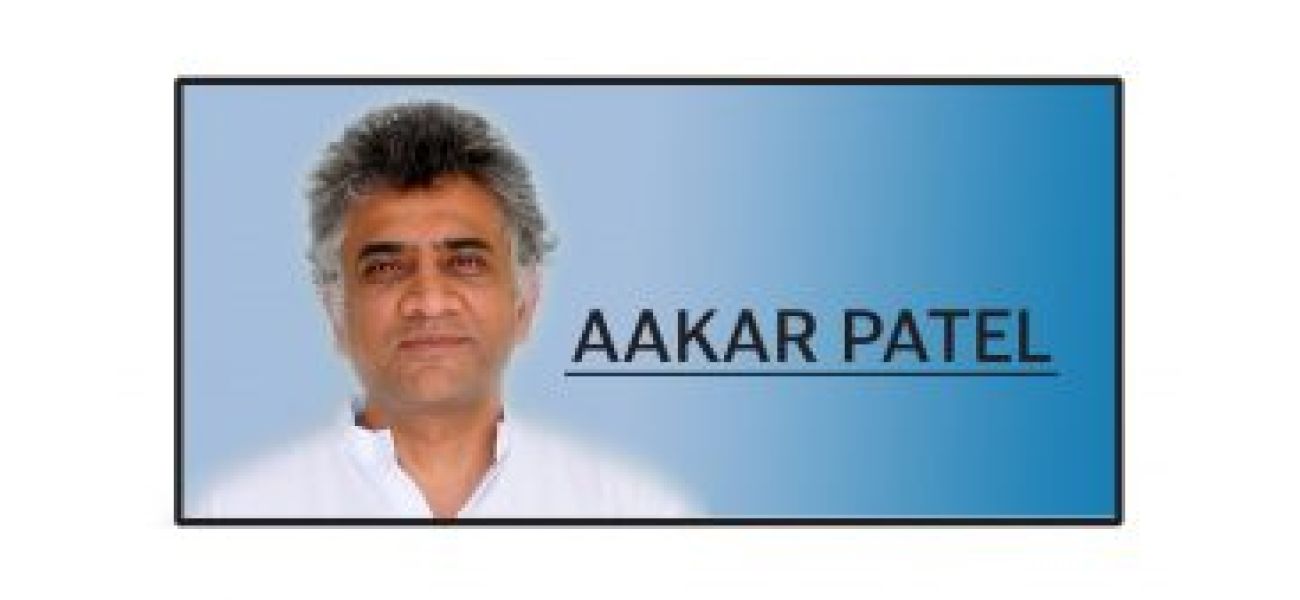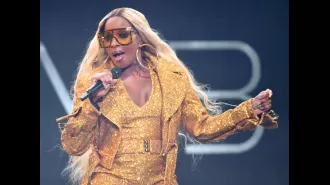Confused devotees
"I have avoided content from right wing influencers, or "bhakts," but now that the government is boasting, I have no reason to listen."
September 1st 2024.

In recent times, I have consciously avoided consuming content on social media produced by those who are often referred to as "right wing influencers," or popularly known as "bhakts." However, I felt the need to understand the perspective of these individuals after the Bharatiya Janata Party lost its majority on 4 June. So, I spent a significant amount of time watching their content and I would like to share my reflections on it.
To begin with, it is worth noting that there are not many prominent figures among the "bhakts," and most of them remain anonymous. Additionally, despite their popularity, they struggle to gain a fraction of the views that other media personalities like Ravish Kumar and Dhruv Rathee receive. This could be attributed to two reasons - firstly, their core message is often aligned with the government's narrative, making their audience limited. After all, why would someone listen to second-hand sycophancy when the primary source is readily available? Secondly, their constant display of anger or resentment does not make for engaging content.
Another noteworthy observation is that even months after the election results, the "bhakts" seem to be struggling to come to terms with the BJP's loss of majority. While supporters of any other party would be thrilled to have retained power, the "bhakts" seem to believe in the concept of complete domination. They are perplexed by the outcome and find it challenging to contextualize it, especially since their notions of a "new India" seem to have disappeared overnight.
Moreover, the "bhakts" are convinced that the Opposition's social media teams played a crucial role in the BJP's defeat. They believe that the spread of fake news, particularly about the BJP's intentions to end reservations and change the Constitution, had a significant impact on the outcome. It is astonishing to see how much they attribute the power of media and narrative to sway voter patterns. They firmly believe that if the BJP had responded strongly to these allegations, they would have easily secured 300 seats or more.
It is worth mentioning that several of these "bhakts" are themselves anti-reservation. They belong to the urban upper caste and their opposition to reservations stems from the need to protect their own class interests. However, they seem to be unaware of the fact that their views could potentially affect voters who do not share their sentiments. They also harbor negative feelings towards a person named Amit Malviya, who is supposedly in charge of the BJP's social media, though it remains unclear why.
Another common theme among the "bhakts" is their dislike for turncoats who have joined the BJP, especially in states like Maharashtra. While it is true that this move has harmed the party's image, their disdain is driven not only by a rejection of corruption but also by a desire for ideological purity.
This brings me to another aspect - their aversion to any talk of inclusion and secularism within the BJP. During the campaign, the party's president JP Nadda spoke about how the BJP does not need the RSS and how they are committed to "sabka saath." However, this message did not go down well with the "bhakts."
I also observed that the "bhakts" felt personally humiliated by the government's recent U-turns and policy changes since the election results. They seem to be unaware that the decade of top-down ideological governance has come to an end, and the prime minister will now have to find a new way of working. Issues like the Waqf bill and lateral entry into the government have particularly agitated them.
Despite their disappointment with the election results, the "bhakts" continue to admire and support Prime Minister Modi. It is evident from their content that they still hold him in high regard and see this setback as a temporary setback. However, after spending hours listening to their views, I could not find any criticism of the prime minister or his style of functioning. They do not seem to prioritize real issues like employment and inflation, and instead, only praise Modi's ability to govern. Furthermore, they seem to be oblivious to the corporate influence in politics and media and the presence of nepotism within the BJP. This could be a reason for their confusion and their inability to understand why the voters rejected Modi and his promises for the future.
Lastly, I must mention that the "bhakts" are quite extreme in their views and language. The way they speak about minorities and marginalized communities is deeply concerning. They seem to have a black-and-white worldview and do not believe in compromise or moderation.
In conclusion, my experience of delving into the world of "bhakts" has left me disappointed with the shallowness and lack of intellectual depth in their content. It does not offer anything useful to its viewers and will likely not be able to support the prime minister as he attempts to embrace a more inclusive approach. In fact, the "bhakts" might even add to his troubles as he tries to move forward while their yearning for a bygone era remains unfulfilled.
To begin with, it is worth noting that there are not many prominent figures among the "bhakts," and most of them remain anonymous. Additionally, despite their popularity, they struggle to gain a fraction of the views that other media personalities like Ravish Kumar and Dhruv Rathee receive. This could be attributed to two reasons - firstly, their core message is often aligned with the government's narrative, making their audience limited. After all, why would someone listen to second-hand sycophancy when the primary source is readily available? Secondly, their constant display of anger or resentment does not make for engaging content.
Another noteworthy observation is that even months after the election results, the "bhakts" seem to be struggling to come to terms with the BJP's loss of majority. While supporters of any other party would be thrilled to have retained power, the "bhakts" seem to believe in the concept of complete domination. They are perplexed by the outcome and find it challenging to contextualize it, especially since their notions of a "new India" seem to have disappeared overnight.
Moreover, the "bhakts" are convinced that the Opposition's social media teams played a crucial role in the BJP's defeat. They believe that the spread of fake news, particularly about the BJP's intentions to end reservations and change the Constitution, had a significant impact on the outcome. It is astonishing to see how much they attribute the power of media and narrative to sway voter patterns. They firmly believe that if the BJP had responded strongly to these allegations, they would have easily secured 300 seats or more.
It is worth mentioning that several of these "bhakts" are themselves anti-reservation. They belong to the urban upper caste and their opposition to reservations stems from the need to protect their own class interests. However, they seem to be unaware of the fact that their views could potentially affect voters who do not share their sentiments. They also harbor negative feelings towards a person named Amit Malviya, who is supposedly in charge of the BJP's social media, though it remains unclear why.
Another common theme among the "bhakts" is their dislike for turncoats who have joined the BJP, especially in states like Maharashtra. While it is true that this move has harmed the party's image, their disdain is driven not only by a rejection of corruption but also by a desire for ideological purity.
This brings me to another aspect - their aversion to any talk of inclusion and secularism within the BJP. During the campaign, the party's president JP Nadda spoke about how the BJP does not need the RSS and how they are committed to "sabka saath." However, this message did not go down well with the "bhakts."
I also observed that the "bhakts" felt personally humiliated by the government's recent U-turns and policy changes since the election results. They seem to be unaware that the decade of top-down ideological governance has come to an end, and the prime minister will now have to find a new way of working. Issues like the Waqf bill and lateral entry into the government have particularly agitated them.
Despite their disappointment with the election results, the "bhakts" continue to admire and support Prime Minister Modi. It is evident from their content that they still hold him in high regard and see this setback as a temporary setback. However, after spending hours listening to their views, I could not find any criticism of the prime minister or his style of functioning. They do not seem to prioritize real issues like employment and inflation, and instead, only praise Modi's ability to govern. Furthermore, they seem to be oblivious to the corporate influence in politics and media and the presence of nepotism within the BJP. This could be a reason for their confusion and their inability to understand why the voters rejected Modi and his promises for the future.
Lastly, I must mention that the "bhakts" are quite extreme in their views and language. The way they speak about minorities and marginalized communities is deeply concerning. They seem to have a black-and-white worldview and do not believe in compromise or moderation.
In conclusion, my experience of delving into the world of "bhakts" has left me disappointed with the shallowness and lack of intellectual depth in their content. It does not offer anything useful to its viewers and will likely not be able to support the prime minister as he attempts to embrace a more inclusive approach. In fact, the "bhakts" might even add to his troubles as he tries to move forward while their yearning for a bygone era remains unfulfilled.
[This article has been trending online recently and has been generated with AI. Your feed is customized.]
[Generative AI is experimental.]
0
0
Submit Comment





